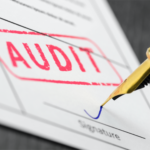Some business owners might believe that their cryptoasset transactions fly under HMRC’s radar, but a new reporting framework is set to change that perception. It’s time to recognise the disposal of cryptoassets as a crucial part of your tax obligations.
As the dust settles from the January tax deadline, attention turns towards preparing for 2023/24 tax returns. One crucial question that should be on your checklist, if it isn’t already, is: “Did you dispose of any cryptoassets this year?”
Declaration is Key
HMRC’s 2022 research revealed that 10% of UK adults hold or have held cryptoassets, with many reporting profits from disposals. Shockingly, 58% were unaware of their tax liabilities when using cryptocurrency for purchases. With 16% considering future acquisitions of cryptoassets, these numbers are likely to swell.
When clients first approached me about cryptocurrency tax implications, guidance was scarce, requiring a return to basics. Fortunately, HMRC’s cryptoassets manual now offers a solid starting point. However, accurate calculations hinge on clients recognising the need to disclose their transactions, an area where awareness remains a common stumbling block.
Increased Clarity
Recognizing the significance, HMRC has escalated its focus on cryptoasset transactions. In recent years, it has dispatched cautionary letters to individuals suspected of failing to report taxable cryptoasset activities. Additionally, HMRC is enhancing transparency in the tax return process.
Previously, cryptoasset gains were buried within the “other property, assets, and gains” section of the SA108. However, a taxpayer might only notice this if they delved into the SA108 notes. Realistically, few take that step.
The 2023 Budget Red Book hinted at forthcoming changes, with the 2024/25 self-assessment tax return requiring separate identification of cryptoasset amounts. This means cryptoassets will no longer be tucked away in SA108 notes but will feature prominently on the form itself.
Furthermore, a consultation document released on Budget Day, titled “Cryptoasset Reporting Framework, Common Reporting Standard Amendments, and Seeking Views on Extension to Domestic Reporting,” underscores HMRC’s intent to shed light on cryptoasset transactions.
CRS and CARF
The UK, an early adopter of the Common Reporting Standard (CRS), facilitates automatic exchange of information among over 100 tax authorities. Now, CRS reporting extends to certain digital financial products, and the cryptoasset reporting framework (CARF) will further this, granting tax authorities access to cryptoasset transaction details.
Reporting cryptoasset service providers (RCASPs) will gather user and transaction data, conduct due diligence, and report to tax authorities. This information will be exchanged with the taxpayer’s jurisdiction. Implementation begins in 2026, with data exchanges commencing in 2027.
The consultation document explores the possibility of extending reporting to UK residents, potentially providing HMRC with valuable insights. In addition to existing interest details, a “domestic” CARF would entail reporting account balances, specific dividends, distributions, and proceeds from financial asset sales.
Expert Business Advice from Voscap
For further business advice, contact Voscap today on 020 7769 6831, or email help@voscap.co.uk. You can also refer to our Latest News, where we provide frequent articles and resources aimed at supporting UK business owners.






